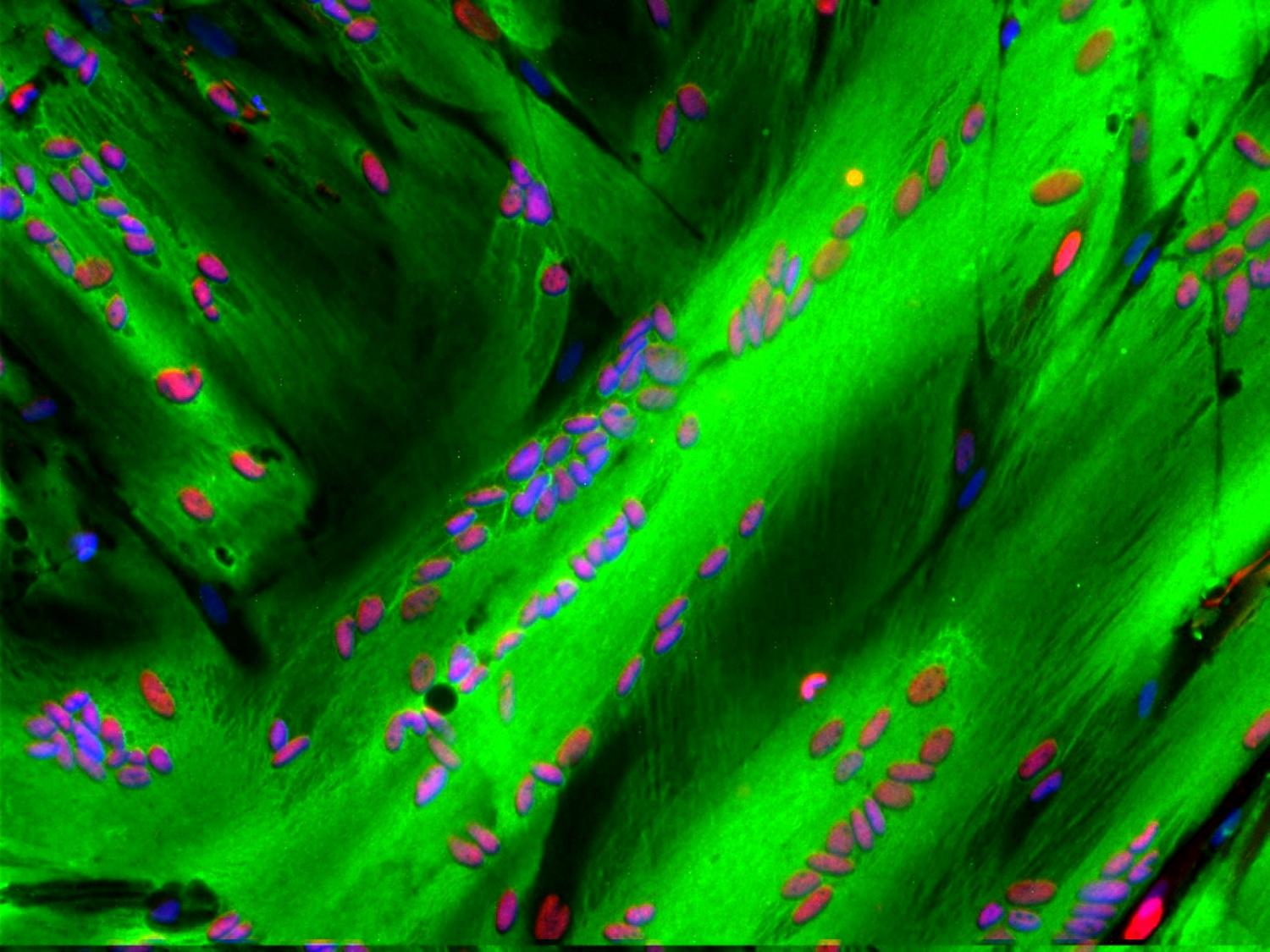Researchers at Sanford Burnham Prebys Medical Research Institute (SBP) have conclusively identified the protein complex that controls the genes needed to repair skeletal muscle. The discovery clears up deep-rooted conflicting data and will now help streamline efforts towards boosting stem cell-mediated muscle regeneration. Such strategies could treat muscle degenerative diseases such as muscular dystrophies, and those associated with aging and cancer.
The research, published today in eLife, describes the essential role of a TBP-containing TFIID-protein complex in activating genes that regenerate muscle tissue, and shows that an alternative protein called TBP2 is not involved in this task in adult muscles.
“Our discovery clarifies the identity of the ‘molecular switches’ that control the activation of muscle genes in muscle stem cells (MuSCs),” said Barbora Malecova, Ph.D., postdoctoral fellow in the laboratory of Pier Lorenzo Puri, M.D., professor in the Development, Aging and Regeneration Program at SBP, and first author of the article. “Understanding what drives muscle gene expression gives us insights into molecular targets for regenerative medicine-based interventions (drugs) to treat muscle degenerative disorders.”
